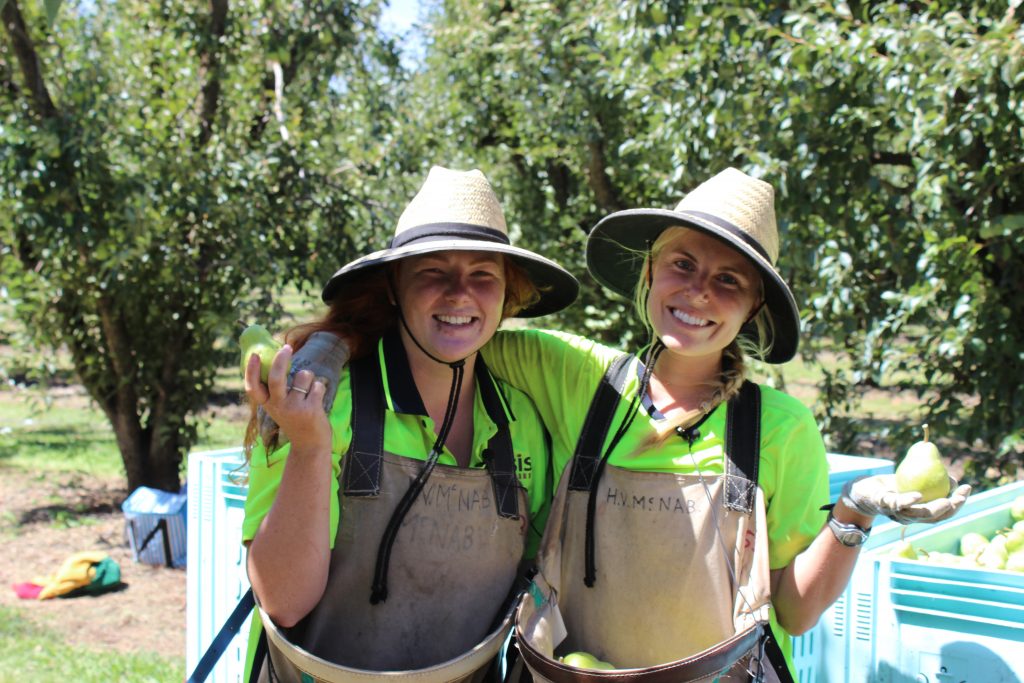
Agriculture Workforce Options Under Attack
The National Farmers’ Federation (NFF) has issued a stark warning that mounting red tape and increasingly complex labour laws are choking access to the workers agriculture desperately needs, placing Australia’s food security, farm viability, and regional economies at serious risk.
NFF President David Jochinke said that workforce access is shaping up to be one of the most pressing issues for farmers this election.
“We’re calling on all political leaders to understand that without a reliable farm workforce, our ability to produce affordable, high-quality food and fibre is under direct threat,” Mr Jochinke said.
“Labour shortages are already forcing some farmers to leave crops unharvested, turn away business, or scale back production. Staff costs make up around a third of farm expenses, and access to workers can mean the difference between a successful season, or watching produce rot in the paddock.”
Mr Jochinke said farmers want to get on with the job of growing food, not navigating a maze of bureaucracy and visa confusion.
“From skilled workers to seasonal help, we need a system that works with us, not against us. This election is a critical moment to fix Australia’s broken farm labour pipeline.”
Domestic Workforce
“On the home front, farmers are grappling with increasingly complex Industrial Relations laws,” Mr Jochinke said.
“We’re asking for a review into these laws, because we believe there are huge productivity gains to be achieved by adjusting these rules.
“Small and family-run farms are struggling to navigate confusing rhetoric on pay rates, overtime, worker classification, compliance with fair work statutory regimes, and more.
“Farmers want to pay their workers a fair wage, but complicated Industrial Relations laws could be streamlined so farmers can spend more time out in the paddock, rather than chained to the desk.”
The NFF also believes that extending the highly successful AgCAREERSTART gap year program for another three years, and establishing a dedicated Agriculture Trade Apprenticeship, would help bolster the domestic workforce.
“The NFF, along with its members, have worked hard to put practical workforce solutions on the table for the incoming Federal Government,” Mr Jochinke said.
Overseas Workforce
Mr Jochinke said employers relied on multiple, secure pathways for overseas workers.
“Short-term, we need to fix the PALM scheme, streamline the skilled visa system, and retain the Working Holiday Maker visa scheme.
“The PALM Scheme is especially fraught. It’s become unworkable for many growers thanks to rigid rules and administrative burden.
“There was real concern raised when the Migration Review flagged limiting, or worse, removing the 88-day regional work incentive for backpackers.
“Thousands of backpackers choose to work in agriculture, and without them, we will see farmers walk away from farming.
“Long-term, we’d like to see a dedicated farm visa for those who want to come and work on Aussie farms.
“Farmers are dealing with a hotchpotch of migration streams, including the backpackers, which are not designed directly for agriculture.
“We note the Coalition’s commitment to introducing a Visa for Agriculture and 100% throw our support behind that.
“Farmers need a strong workforce strategy – from backpackers to skilled migrants to young Aussies giving agriculture a go.”
Following recent announcements from the major parties about migration cuts, the NFF has received assurances from the Coalition these would not impact agriculture. It now called on Labor to do the same.
“Any politician serious about addressing cost of living will recognise a viable workforce is key to making sure food prices don’t continue to climb.”
https://nff.org.au/media-release/agriculture-workforce-options-under-attack/


